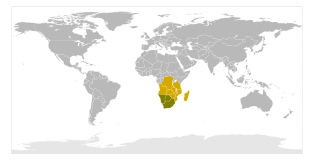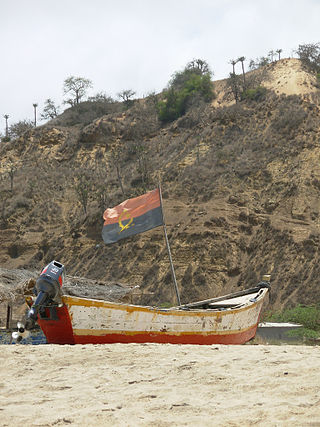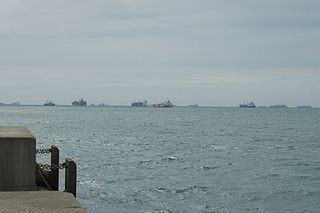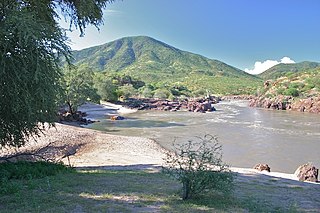
United Nations Security Council resolution 1173, adopted unanimously on 12 June 1998, after reaffirming Resolution 696 (1991) and all subsequent resolutions on Angola, particularly Resolution 1127 (1997), the council announced its intention to impose further sanctions against UNITA for non-compliance, unless it co-operated to extend state administration throughout the country.
The Fowler Report, released on March 14, 2000, is a United Nations report detailing how various companies, African and European governments, including that of Angola and the political wing of UNITA, violated the Lusaka Protocol as well as UN-imposed sanctions. Robert Fowler, Canada's ambassador to the United Nations, headed the commission that compiled the report, which raised widespread international concern by highlighting the strong link between the illicit diamond trade and third world conflicts.

United Nations Security Council resolution 864, adopted unanimously on 15 September 1993, after reaffirming resolutions 696 (1991), 747 (1992), 785 (1992), 793 (1992), 804 (1993), 811 (1993), 823 (1993), 834 (1993) and 851 (1993), the Council noted the continuing situation in Angola and went on to condemn and place international sanctions on UNITA.

United Nations Security Council resolution 1295, adopted unanimously on 18 April 2000, after reaffirming Resolution 864 (1993) and all subsequent resolutions on Angola, particularly resolutions 1127 (1997), 1173 (1998) and 1237 (1999), the Council authorised a tightening of sanctions against UNITA and established a panel of experts to investigation violations of Security Council resolutions imposing measures against UNITA.

United Nations Security Council resolution 1176, adopted unanimously on 24 June 1998, after reaffirming Resolution 696 (1991) and all subsequent resolutions on Angola, particularly Resolution 1173 (1998), the Council suspended its intention to impose further sanctions against UNITA for non-compliance until 1 July 1998.
United Nations Security Council resolution 932, adopted unanimously on 30 June 1994, after reaffirming Resolution 696 (1991) and all subsequent resolutions on Angola, the council discussed the situation during the civil war and extended the mandate of the United Nations Angola Verification Mission II until 30 September 1994.

United Nations Security Council resolution 1127, adopted unanimously on 28 August 1997, after reaffirming Resolution 696 (1991) and all subsequent resolutions on Angola, the council, acting under Chapter VII of the United Nations Charter, imposed sanctions on UNITA following the lack of compliance in implementing peace agreements after the civil war.

United Nations Security Council resolution 1135, adopted unanimously on 29 October 1997, after reaffirming Resolution 696 (1991) and all subsequent resolutions on Angola, the Council extended the mandate of the United Nations Observer Mission in Angola (MONUA) until 30 January 1998 and urged UNITA to comply with previous resolutions, particularly as sanctions were due to come into effect.

United Nations Security Council resolution 1202 was adopted unanimously on 15 October 1998, after reaffirming Resolution 696 (1991) and all subsequent resolutions on Angola, including Resolution 1196 (1998) on Africa. The council extended the mandate of the United Nations Observer Mission in Angola (MONUA) until 3 December 1998.

United Nations Security Council resolution 1219, adopted unanimously on 31 December 1998, after reaffirming Resolution 696 (1991) and all subsequent resolutions on Angola, particularly resolutions 1202 (1998) and 1213 (1998), the Council condemned the absence of actions to determine the fate of crew and passengers aboard United Nations Flight 806 which crashed on 26 December 1998.

United Nations Security Council resolution 1221, adopted unanimously on 12 January 1999, after reaffirming Resolution 696 (1991) and all subsequent resolutions on Angola, particularly resolutions 1196 (1998) and 1219 (1998), the Council condemned the downing of two commercial planes over UNITA-controlled territory in Angola and demanded that UNITA leader Jonas Savimbi co-operate in the search for survivors of the recent plane crashes.

United Nations Security Council resolution 1306, adopted on 5 July 2000, after recalling all previous resolutions on the situation in Sierra Leone, particularly resolutions 1132 (1997), 1171 (1998) and 1299 (2000), the Council decided to prohibit the direct or indirect import of rough diamonds from the country. The rebel Revolutionary United Front controlled 90% of the diamond-producing areas in Sierra Leone and was using diamonds to finance its operations.

United Nations Security Council resolution 1336, adopted unanimously on 23 January 2001, after reaffirming Resolution 864 (1993) and all subsequent resolutions on Angola, particularly resolutions 1127 (1997), 1173 (1998), 1237 (1999) and 1295 (2000), the Council extended the monitoring mechanism of sanctions against UNITA for a further three months.

United Nations Security Council resolution 1343, adopted unanimously on 7 March 2001, after recalling resolutions on Sierra Leone and the region, including resolutions 1132 (1997), 1171 (1998) and 1306 (2000), the Council demanded that Liberia end its support for rebels in Sierra Leone and threatened the imposition of wide-ranging sanctions unless the country complied with the Security Council.

United Nations Security Council resolution 1348, adopted unanimously on 19 April 2001, after reaffirming Resolution 864 (1993) and all subsequent resolutions on Angola, particularly resolutions 1127 (1997), 1173 (1998), 1237 (1999), 1295 (2000) and 1336 (2001), the council extended the monitoring mechanism of sanctions against UNITA for a further six months until 19 October 2001.

United Nations Security Council resolution 1374, adopted unanimously on 19 October 2001, after reaffirming Resolution 864 (1993) and all subsequent resolutions on Angola, particularly resolutions 1127 (1997), 1173 (1998), 1237 (1999), 1295 (2000), 1336 (2001) and 1348 (2001), the council extended the monitoring mechanism of sanctions against UNITA for a further six months until 19 April 2002.

United Nations Security Council resolution 1404, adopted unanimously on 18 April 2002, after reaffirming Resolution 864 (1993) and all subsequent resolutions on Angola, particularly resolutions 1127 (1997), 1173 (1998), 1237 (1999), 1295 (2000), 1336 (2001), 1348 (2001) and 1374 (2001), the council extended the monitoring mechanism of sanctions against UNITA until 19 October 2002.

United Nations Security Council resolution 1439, adopted unanimously on 18 October 2002, after reaffirming Resolution 864 (1993) and all subsequent resolutions on Angola, particularly resolutions 1127 (1997), 1173 (1998), 1237 (1999), 1295 (2000), 1336 (2001), 1348 (2001), 1374 (2001), 1404 (2002), 1412 (2002) and 1432 (2002), the council extended the monitoring mechanism of sanctions against UNITA for two months until 19 December 2002 and lifted a travel ban against its members.

United Nations Security Council resolution 1448, adopted unanimously on 9 December 2002, after reaffirming Resolution 864 (1993) and all subsequent resolutions on Angola, particularly resolutions 1127 (1997), 1173 (1998), 1237 (1999), 1295 (2000), 1336 (2001), 1348 (2001), 1374 (2001), 1404 (2002), 1412 (2002), 1432 (2002), 1434 (2002) and 1439 (2002), the Council noted progress in the country and lifted remaining sanctions against UNITA, including an arms embargo, travel restrictions and the freezing of assets.
United Nations Security Council Resolution 1760 was unanimously adopted on 20 June 2007.















